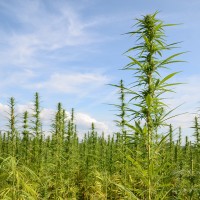Malawi’s Parliament has adopted a motion to legalise the cultivation and use of industrial hemp.
The legislation would recognise industrial hemp in the impoverished nation as an agricultural cash crop and separate it from other cannabis varieties; collectively known as “chamba” in Malawi.
“Industrial hemp has been grown in some countries since the 1770s and it has been proven a viable cash crop,” said Ntchisi North Constituency Lawmaker Boniface Kadzamira. “Malawi needs this legislation to start enjoying the benefits that accrue from the growing and use of industrial hemp.”
In November last year, Malawi’s government approved plans to grow industrial hemp for export on a trial or temporary basis.
Hemp has the potential to reshape Malawi; turning it from a nation reliant on imports into a major exporter.
Malawi is one of Africa’s smallest countries and among the world’s least-developed nations; heavily dependent on international aid. The country’s GDP per capita was just 226.46 USD in 2013.
With an economy based on agriculture and around 85% of the population living in rural areas; there is no shortage of workers who could benefit from this highly lucrative crop and who could power a domestic hemp revolution.
Malawi’s main agricultural products currently are tobacco, sugarcane, cotton, tea, corn, potatoes and sorghum.
The recent news was welcomed by the Kemet Forum, which commended Members of Parliament of the Malawi National Assembly for their decision and has urged rapid action to enact a Bill on Industrial hemp to make it possible for the cultivation and processing under appropriate regulations and licensing.
“In this regard, the particular laws that we propose to be amended accordingly are the Dangerous Drugs Act and the Noxious Weeds Act which both classify all varieties of cannabis including Industrial hemp as substances or plants that are valueless and extremely harmful to society,” says part of a statement from the group.
The Kemet Forum, which describes itself as a network of progressively minded Africans, says it strongly believes in the huge potential to generate investment in the growing, processing and retail of industrial hemp and associated products.


